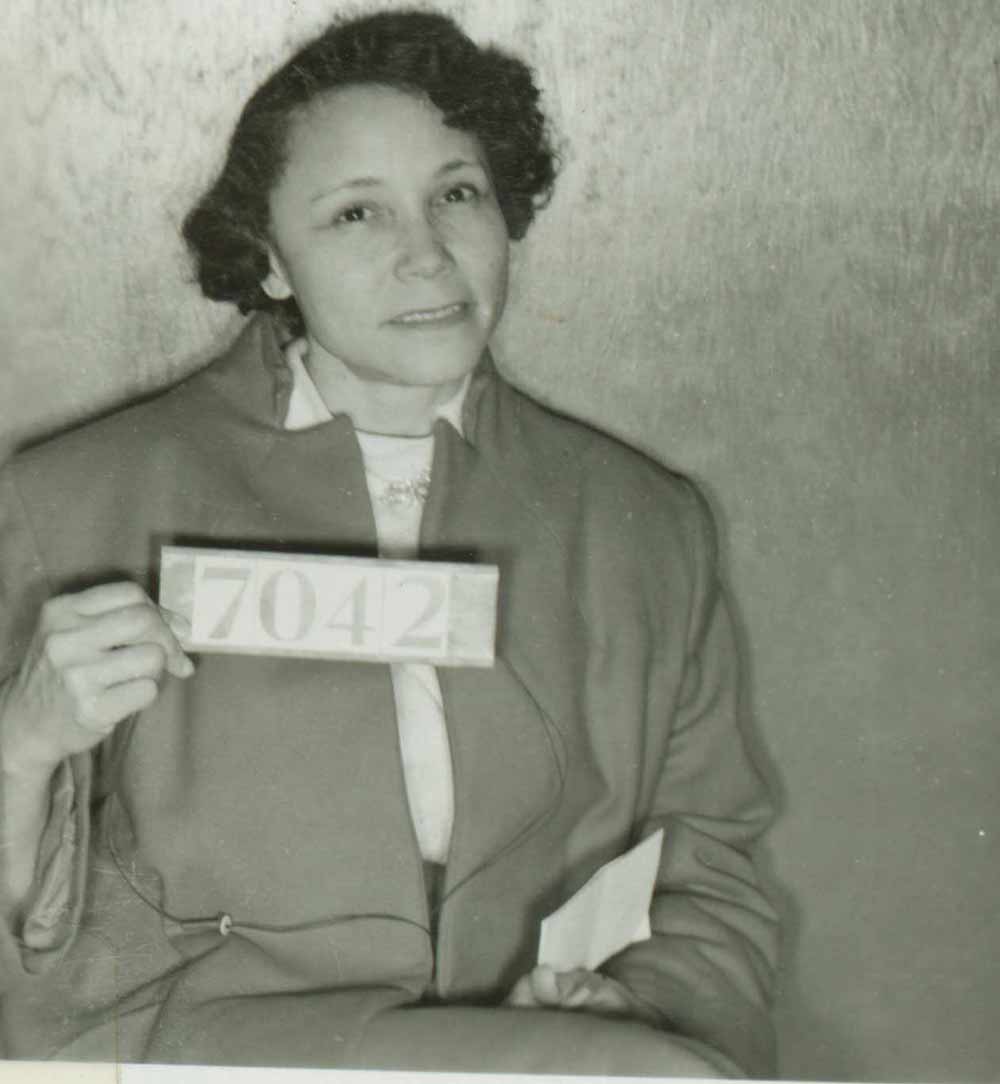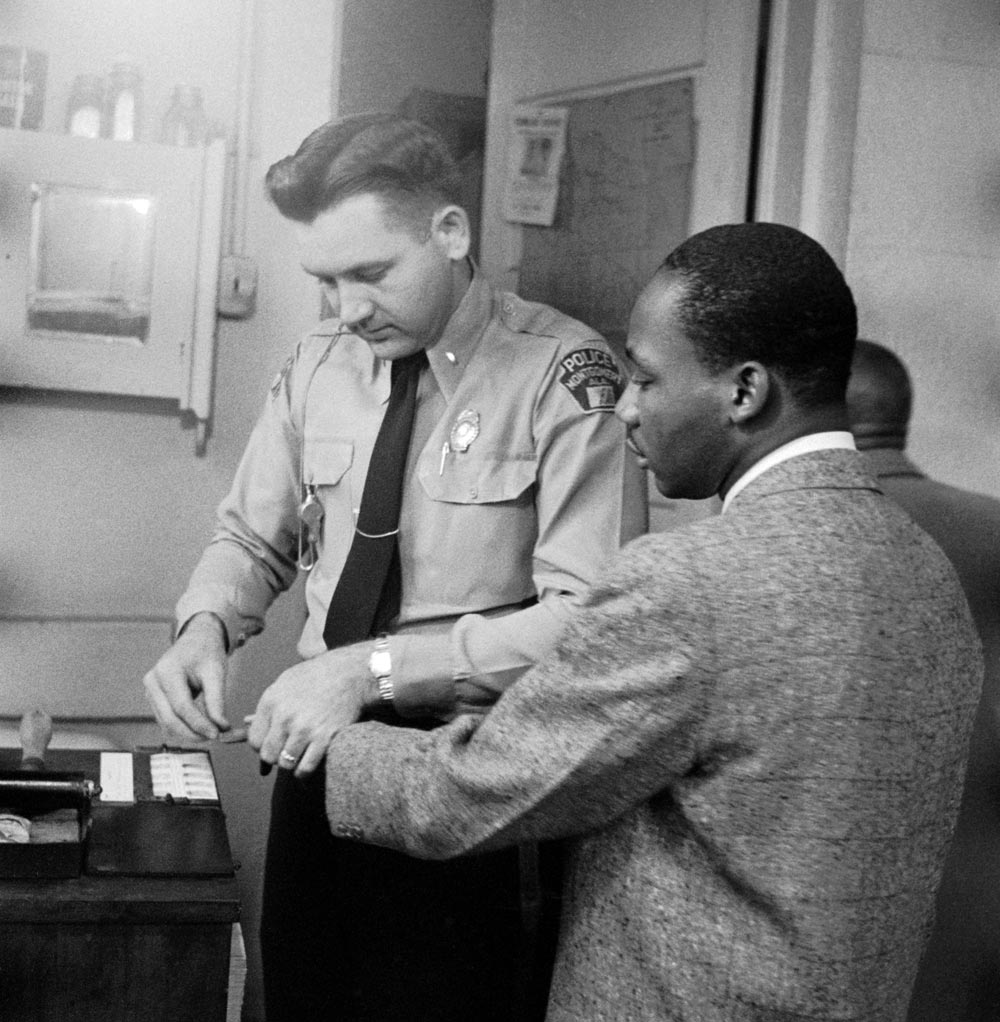Activists Behind Bars
Scroll for moreBy criminalizing civil rights activists, opponents of civil rights shifted the public debate from segregation to crime.
Many men and women who are today among the most revered and celebrated figures of the Civil Rights Movement were arrested and jailed for their activism, denounced as criminals and lawbreakers, and targeted with all the force of the legal system by officials and institutions that opposed the fight for racial equality.

Jo Ann Robinson was arrested for organizing the Montgomery Bus Boycott in 1955.
Photo: Montgomery County Archives
During the Civil Rights Movement, peaceful protests and civil disobedience were attacked as unlawful, and civil rights leaders were targeted for legal persecution.
“For more than a decade—from the mid-1950s until the late 1960s,” wrote Michelle Alexander, “conservatives systematically and strategically linked opposition to civil rights legislation to calls for law and order, arguing that Martin Luther King Jr.’s philosophy of civil disobedience was a leading cause of crime.” Some segregationists even claimed that integration caused crime, and found their rhetoric bolstered by suspect but highly publicized FBI reports of dramatic increases in the national crime rate.
In 1955, Rosa Parks’s arrest for refusing to give up her seat to a white passenger on a city bus in Montgomery, Alabama, sparked a city-wide boycott of the bus system. In response, local police arrested scores of Black activists and carpool drivers on phony traffic charges and tried to disbar the Black lawyer who sued to challenge bus segregation. In 1956, Dr. King, Mrs. Parks, and Jo Ann Robinson were among 89 leaders arrested and charged with organizing an illegal boycott. Almost a decade later, FBI director J. Edgar Hoover declared Dr. King “the most dangerous Negro in America.”
After interracial groups of students riding buses through the South to challenge segregation laws were attacked in multiple Alabama cities in 1961, they rode on to Mississippi, where they were subject to mass arrest and weeks of imprisonment in the infamous Parchman Farm Penitentiary. Activist ministers were arrested for leading nonviolent marches against segregation and advocating for voting rights, including Ralph Abernathy, Fred Shuttlesworth, and C.T. Vivian. But these arrests brought them no shame.
Dr. King declared it “a moral responsibility to disobey unjust laws” in his 1963 “Letter from a Birmingham Jail,” where he was incarcerated for peacefully demonstrating against segregation. “One who breaks an unjust law must do so openly, lovingly, and with a willingness to accept the penalty,” he wrote. “I submit that an individual who breaks a law that conscience tells him is unjust, and who willingly accepts the penalty of imprisonment in order to arouse the conscience of the community over its injustice, is in reality expressing the highest respect for law.”

Dr. Martin Luther King Jr. is fingerprinted after his arrest in 1956 for leading the Montgomery bus boycott.
Photo: Don Cravens/The LIFE Images Collection/Getty Images